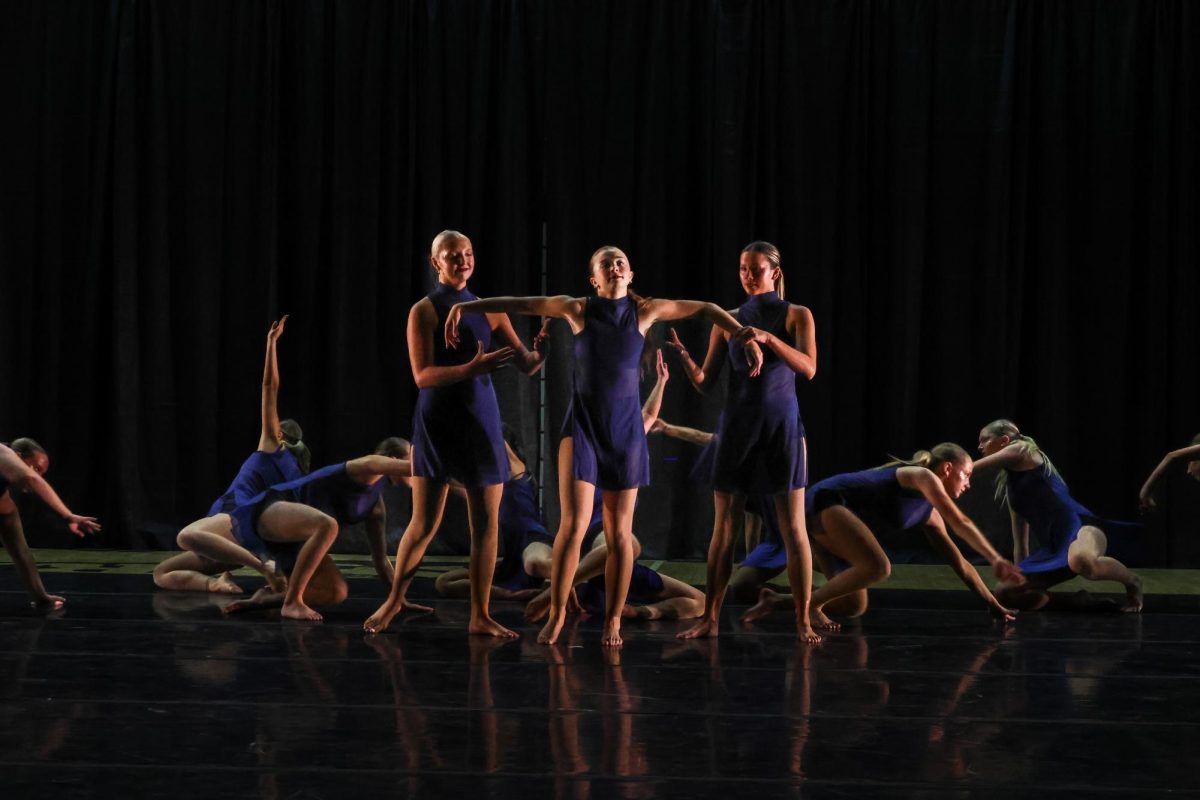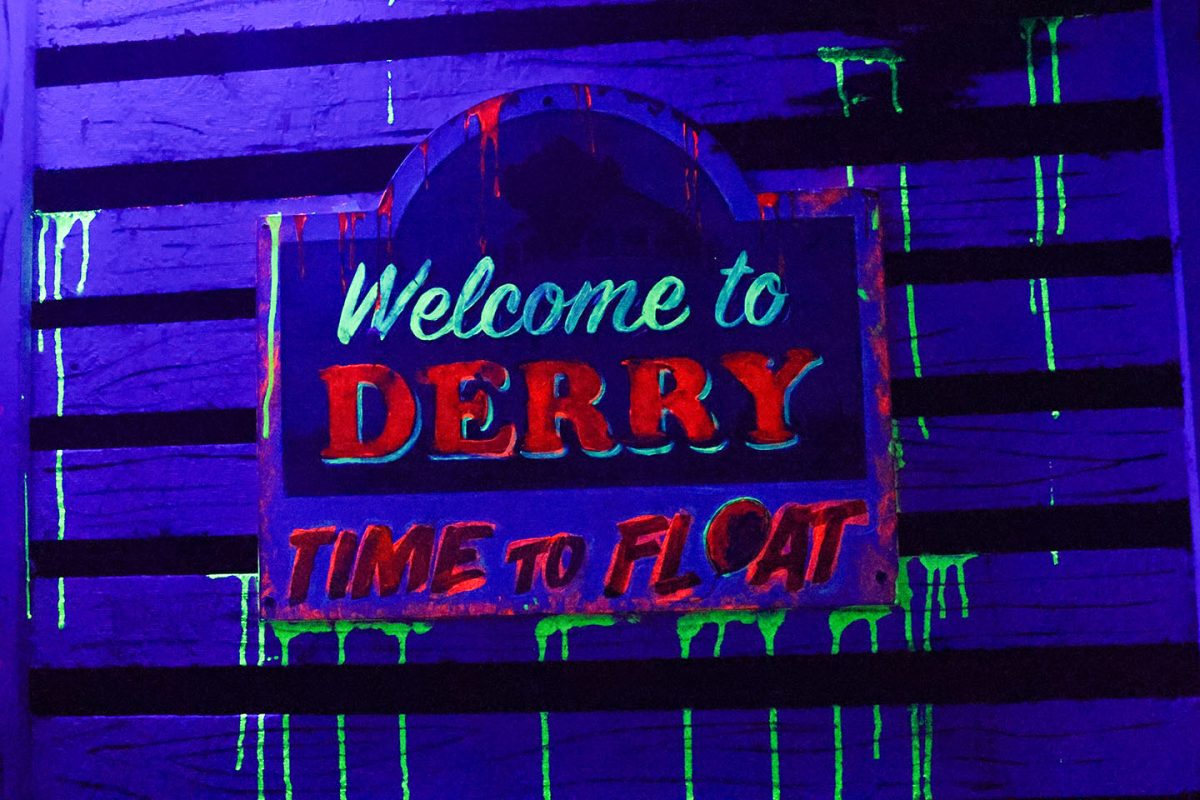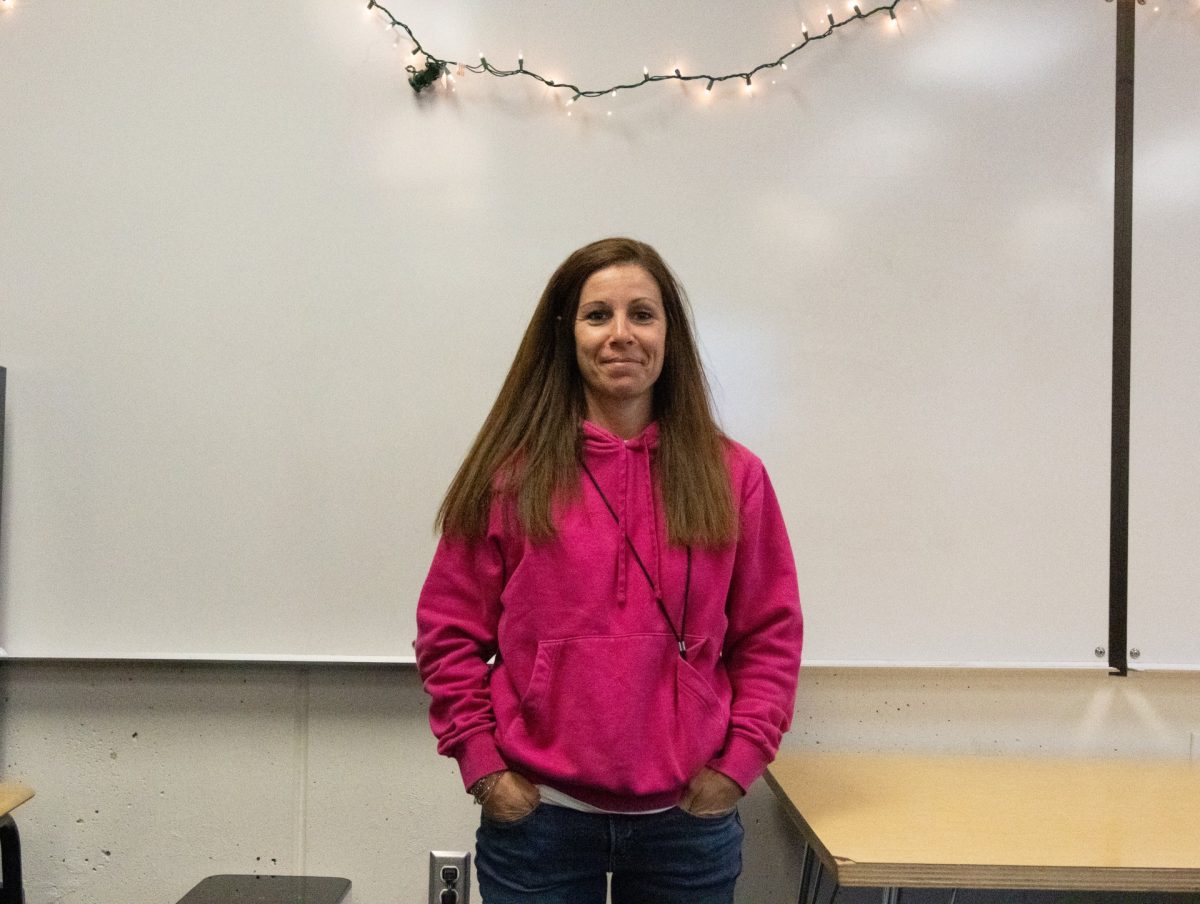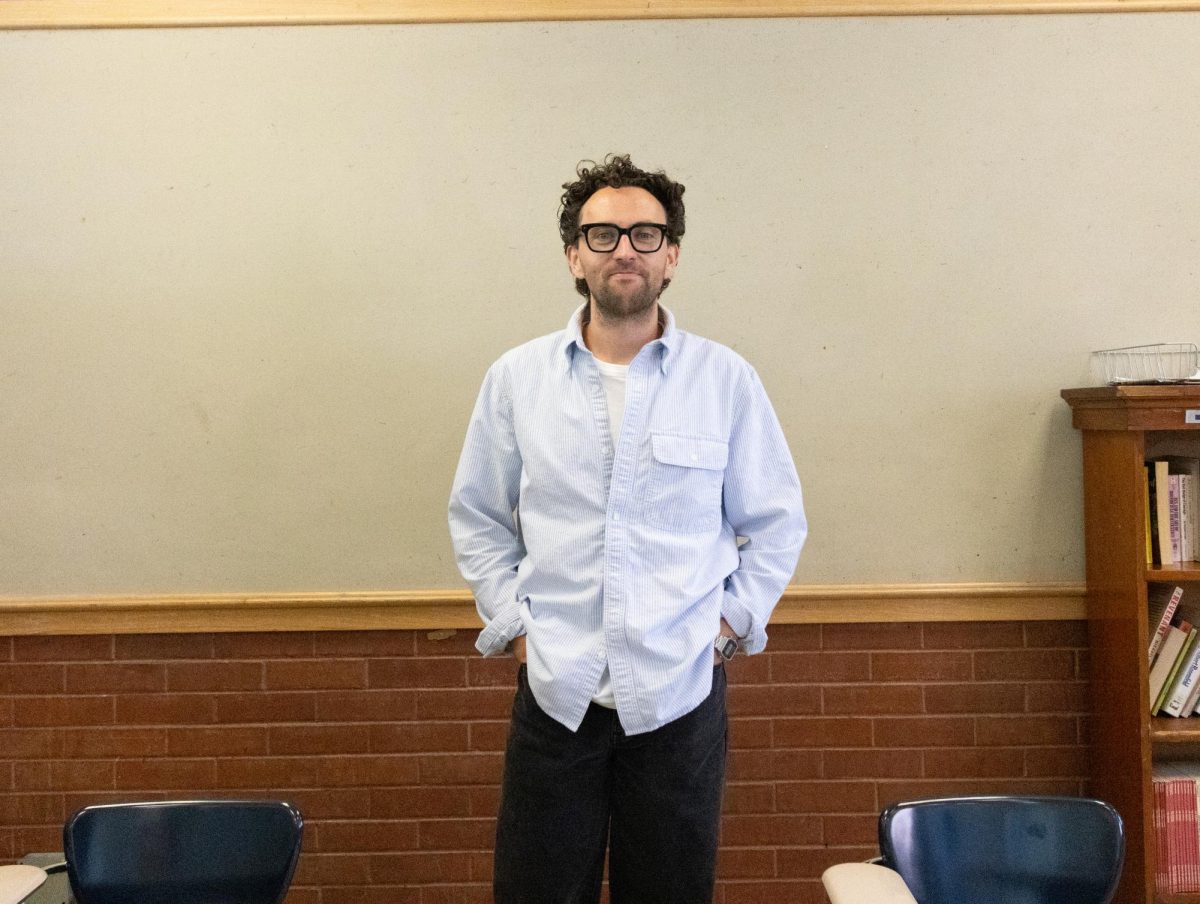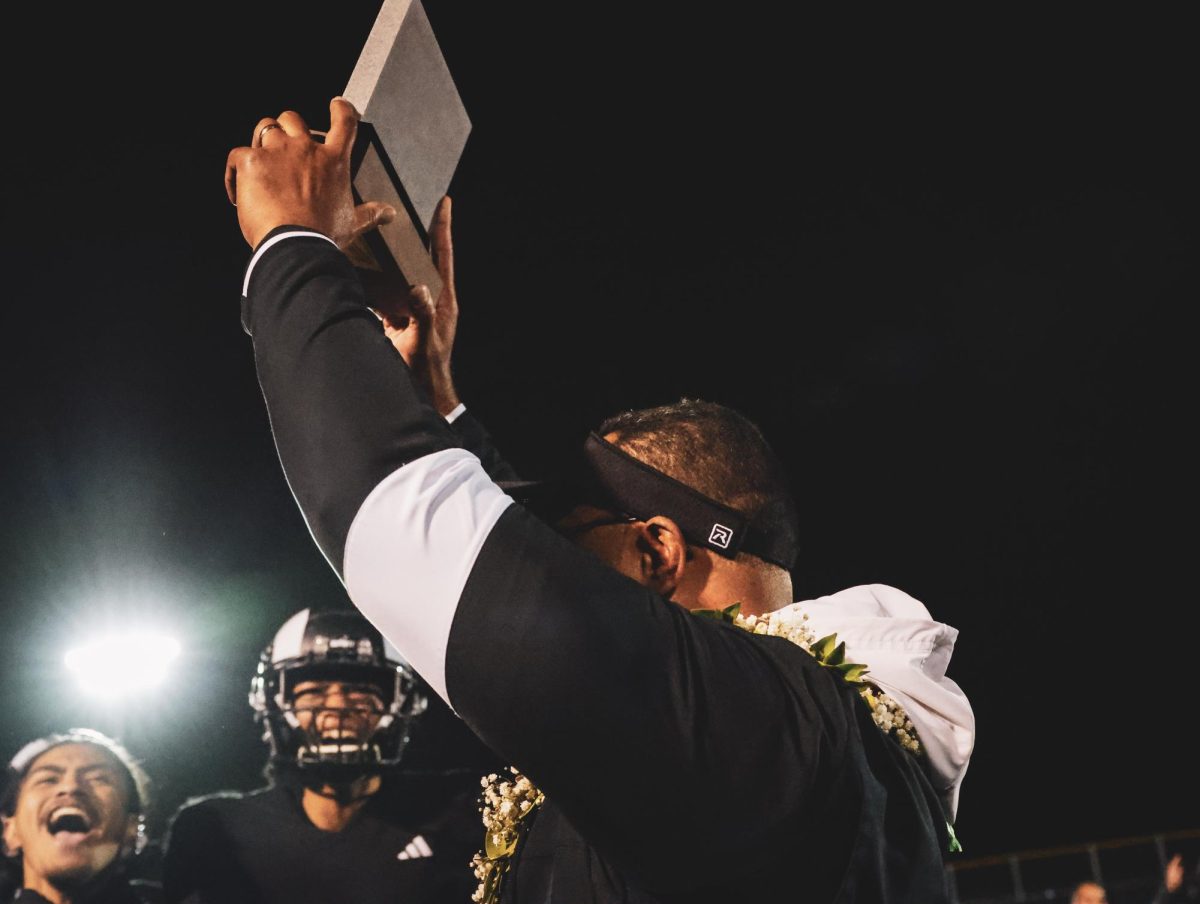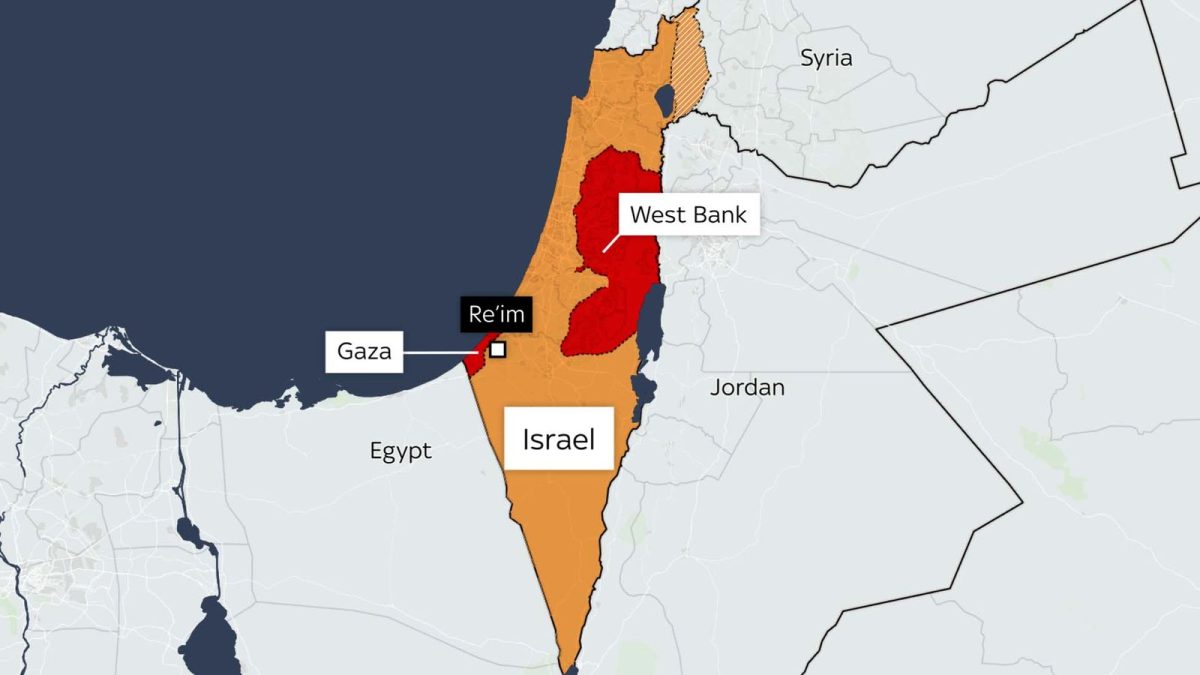On October 7, 2023, Hamas militants breached Israel’s “Iron Dome” and attacked several settlements and a music festival in southern Israel, killing an estimated 1,200 people and taking around 240 people hostage back into the Gaza Strip, an area of land in southern Israel that borders Egypt and the Mediterranean Sea that is Hamas’s stronghold. Israel responded by invading the Gaza Strip and has been waging a bloody war there ever since, with 25,000 Palestinian casualties being reported by the Ministry of Health in Gaza, the majority being civilians.
But this isn’t about what’s happening over in Gaza. This is about what is happening here, in Highland, to students and members of this community.
Highland students like junior Ali Jadallah, who is Palestinian and has extended family in the region, and Nate Horowitz, who is Jewish and has family in Israel, have been watching the war unfold with horror.
Students around the country have been impacted in some way, but students with familial, cultural, or religious ties to the area have felt it so much more.
The war goes much further back than 2023. Israel and Palestine have been dealing with the fallout of British imperialism since 1948.
In 1917, Britain publicly announced that they supported creating a Jewish homeland in what was then Ottoman-controlled Palestine. This was endorsed by the League of Nations, the precursor to the UN. After World War I, Britain took control of Palestine and added it to their empire. According to the BBC, Jews flocked to Palestine during the interwar period, or the period between World War I and World War II, to flee persecution in Europe, especially the Nazi Holocaust in World War II. This led to increased tension between Jewish and Arab groups. In 1947, the UN voted for a two-state solution, splitting Palestine into two separate Jewish and Arab states. This was accepted by Jewish leaders, but rejected by Arab leaders and was thus never implemented.
Natalie Villa, a sophomore at Highland who has friends who have been deeply impacted, said she experienced nightmares over what is happening in Gaza.
“I’ve seen the videos of what’s going on [in Palestine] and it’s hard because it’s kids our age who have dreams the same as us,” Villa said.
The war has had the effect of strengthening both Muslim and Jewish groups throughout Utah and giving both a sense of pride, despite what is happening an ocean away.
“As the Palestinian people as a whole, I’d say it’s impacted us very greatly and strengthened us…and really shows what the Palestinian people are made of; their resilience and how they can face these difficult pasts and hardships that are being dealt with. And overall, the Palestinian community has really strengthened the people,” Jadallah said.
A similar effect has been felt by some Jewish groups.
“They [family from Israel] flew in right before the start of the conflict and it was going on while they were there…obviously their son was in the military at the time [Israel requires its citizens to serve for 24-32 months when they turn 18],” Horowitz said. “They definitely had a pride for being Israeli and they definitely wanted to go back, it wasn’t necessarily even a thought for them to stay here in a generally more safe area.”
In 1948, Britain withdrew from Palestine and left the problem up to the local Jewish and Arab groups. Fighting between Jewish and Arab militias intensified, and a day after Israel declared statehood on May 14, 1948, Syria, Iraq, Egypt, Lebanon, and a Saudi Arabian contingent under Egyptian command invaded Israel in support of Palestinian militias.
After over a year of bloody combat, Israel signed separate armistice agreements until war broke out again in 1967, when Israel decisively defeated Egypt, Jordan, and Syria in six days. During these two wars and the period in between, Israel expelled almost a million Palestinians from their ancestral homelands, according to Al Jazeera.
Students at Highland and around the country have wildly different views on the war, due to the divisive nature of the war. Like every war, both sides are destructive, and neither side is a perfect combatant. Many people are learning the hard truth that there are no “good guys” in war. Israel was attacked and has every right to counterattack. However, they’ve also inflicted thousands of civilian casualties against the Palestinians.
Highland students are, for the most part, civil about their views.
Villa organized a peaceful pro-Palestine rally in November of last year. She and other Highland students, including Horowitz, walked down 17th South in support of Palestine, holding signs and chanting pro-Palestinian chants.
“When I first heard about it [the pro-Palestinian rally in November] I was kind of in turmoil over if to go or not. I really didn’t know if it would be peaceful versus something that was more targeted at hate towards Israel, or at least Jewish people, so I was wondering if I would be safe or if it would be driven by hate versus this idea of peace,” Horowitz said. “I did end up going and it went well and was peaceful, and slowly I got less nervous about it.”
Trin Martin, a Highland senior who is Kavkazi Jewish, which refers to Jewish people from the region around the Caucasus Mountains, which splits Asia and Europe, feels impacted because of the spreading hostility towards Jewish people. Martin is worried where they’ll end up in the future.
“I would say, while applying for colleges, and not knowing where I’m going to be next year, that sort of fear [over their safety] has come up,” Martin said. “Religious and cultural affiliation has definitely come into play in terms of my safety going for, and I think that has definitely been impacted by the war.”
After the Oslo accords in 1993, which brought peace to a troubled area, Palestine and Israel seemed to finally be at peace, although many Palestinians in the West Bank, a western region in Israel considered internationally to be under Palestinian control, have been reporting that hundreds of thousands of Jews are settling in the region, with violence common against the Palestinians living there. In 2007, Hamas was elected to power in Palestine. Since then, both sides have launched missile salvos at the other, leading to a recipe for war.
Hamas has been designated as a Foreign Terrorist Organization by the United States since 1997 due to their attacks on Israeli civilians.
The war is very divisive. Despite the civility of many students at Highland, students who have spoken out have been attacked online.
“Some people believe that since we’re students and since we’re young, we don’t have a right to say anything about this situation because we’re young,” Villas said.
When asked about the hostility she’s seen, Villas said that most of the attacks come from random strangers online. Jadallah regularly posts on his Instagram stories about the war in order to spread awareness about what is happening in Gaza. He has routinely had people DM him and harass him for his messages.
“In my mind, feeling safe and welcome and accepted in everyday society has changed because if I’m making a post on social media, trying to spread awareness…and people attack me and call me a terrorist and stuff, just for trying to spread information,” Jadallah said. “I’ve had multiple instances where people call me a terrorist and other names and made fun of and attacked me just for…trying to spread awareness.”
However, almost all of the hostility faced by students at Highland are attacks online. Most likely because insulting someone is much harder when they’re standing in front of you. It’s cowardly to be a keyboard warrior, attacking those who are different online while being unable to defend yourself in person.
Unfortunately, the war has also made some students more cautious to bring up their background.
“This right now has been the scariest time to say that I’m Jewish because I worry about the backlash from my friends, even though they don’t know my political beliefs and my stance on the issue,” Sophia Jeschke, a Jewish student at Highland, said. “I think that even without talking about the crisis that’s going on in Gaza, I don’t want to bring up that I’m Jewish right now because I worry about losing friends or having people I don’t know hate me, even though I’m obviously advocating for peace.”
Around the country, both antisemitism and islamophobia have risen as a result of the Israel-Hamas war. People are scared for their relatives, people are angry at the attacks from both sides, people want their own justice. And as a result, many are lashing out against total strangers — strangers who have no part in the war because of their cultural or religious identity. Yet it seems that some people, not many, are using it as an excuse to inflame their pre-existing hatred against Jews or Muslims.
“It’s been scary to watch how many people have taken this conflict as an excuse to share their antisemitic beliefs instead of trying to help the people suffering,” Jeschke said.
These are hard times for people. Hate seems to be spreading; fear is seeping into society. War tears communities apart as it has always done. Reports illustrate how people are factionalizing and becoming less tolerant of opposition and less civil towards others.
Yet, at Highland High School, people aren’t physically attacking anyone, and, for the most part, students are civil about the sensitive subject and trying to see both sides. Take Horowitz, who has family in Israel. He went to the pro-Palestine rally in November to support the cause of peace, which is what most people at Highland want, peace. People don’t want death and destruction, even an ocean away. And so, students at Highland, alongside students around the world, have routinely led the call for peace in our time.
A War At Home
Students Feel The Sting Of Conflict In the Middle East
Luca DiGregorio, Associate Editor
February 15, 2024
0
